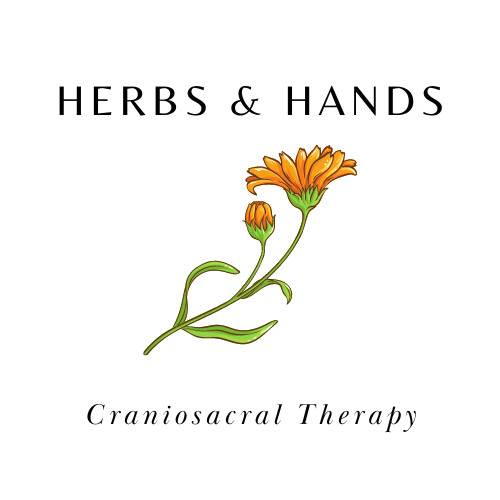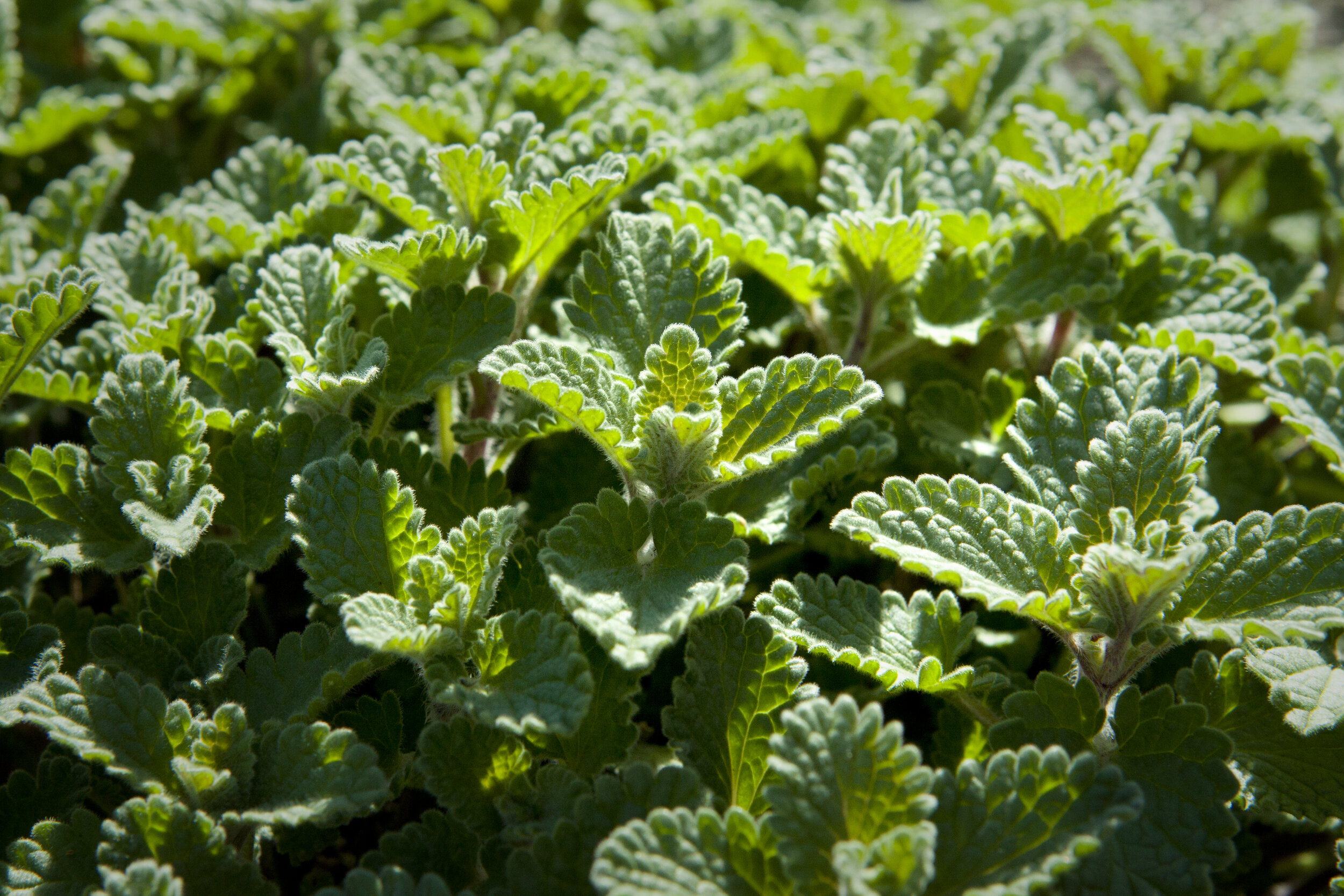Herbs for Mood Support
Doesn’t that picture of the lavender field above just make you want to let out a sigh of relief? I could look at it and take a few deep breaths to center myself just about any time. When times are difficult, as they are now, and the future seems unpredictable, it helps to have plenty of tools we can fall back on for support. Herbs can be one of those tools.
If you are having a mental health emergency, please do reach out for additional support as herbs can only do so much especially if they haven’t been used regularly. There are many great resources out there for counseling from your home such as better help. If you already have a relationship with a counselor, they may be offering phone or video visits. If you take medications to help with your moods, please be sure not to make any abrupt changes now and do make sure you have a good supply at home. Many doctors, myself included, have been authorizing medication refills for 90 days instead of the usual 30 days. If you have insurance, please check to see if you can get a 90 day supply through your normal pharmacy or if you need to use a mail order pharmacy.
All herbs I am mentioning below are safe to use with medications, so feel free to experiment with herbal teas. Some herbs you may find growing near you, and others you may need to order. Check for herbalists close to you to see if they are making deliveries or sending orders through the mail first, and if you need additional resources, check with Clary Sage Herbarium, Pacific Botanicals, or Mountain Rose Herbs.
If you are looking for a tea that is already mixed and ready to go, try Daily Divini-Tea, Unfrazzle Your Dazzle or Where is My Mind from our friend Mountain Mel.
Oats (Avena sativa):
Yes oats as in oatmeal. When used for herbal mood support, we can use two parts of this plant for slightly different medicinal qualities. First, we can use oatstraw (the grassy stems) for subtle, nourishing, mineral-rich calming. This is best used as a nourishing infusion. According to Susan Weed, "Oatstraw nourishes the nerves, easing anxiety and improving our ability to live with uncertainty.” (1) That sounds pretty good to me right now. In fact, I’m drinking oatstraw and nettle infusion as I write this.
The second part of oats we use is the seed head. This is the part that can be dried and used to make the oatmeal we see at the grocery store. You can eat this for great nutritional support including increasing your fiber intake to support healthy gut microbes which will also support your mood. We are looking for the green oat tops in their milky phase. This means, when you squeeze the oat top, a drop of milky white liquid will form. This is the magic phase and what you will often see in tincture form. I commonly prescribe a tincture of milky oats and skullcap for patients with chronic stress and mood swings to great effect.
Milky oats have all the benefits of oatstraw with a stronger anti-anxiety component. Like all herbs, oats act to gently and gradually support your health giving your body the nutrients it needs to create balance. Don’t expect oats to pull you out of a panic attack, but when used over a long period of time and with counseling, exercise, good nutrition, and individualized changes you can expect to see panic attacks become less severe and less frequent. The key is consistency and changing your formulation as your individual need for support changes (following your symptoms and prescribing accordingly).
Milky oats work great in “nervous states with exhaustion, inability to concentrate, melancholy, diminished strength of limbs or numbness of limbs, occipital headache extending down the spine as well as into the head.” (2)
Lemon balm (Melissa officionalis):
Oh, lovely lemon balm, our herb of the month, and we spoke about her anti-anxiety and mild-antidepressant effects in our first article of April. I’ll summarize here, but if you haven't read the article, please do to learn about the other health benefits of lemon balm and how easy it is to grow. Lemon balm Medicine article
Lemon balm is used in persons who present with “stress, anxiety, restlessness, palpitations, [high blood pressure], headaches, depression, and irritability.” (3) It’s similar to how someone with an overactive thyroid gland would feel, amped up and a bit out of control. If you have hypothyroidism and have ever accidentally taken too much of your hormone replacement, you know the feeling well.
One of the nicest things about lemon balm is her taste: light, green, and lemony. This makes lemon balm a fantastic tea herb.
Lavender (Lavandula angustifolia):
“If you have someone who is anxious, nervous, has a headache, muscle spasms and stammering, think of Lavender.” (4)
Lavender has quite the reputation as a calming herb. Lavender soaps, essential oil sprays, eye pillows, teas, linen mists, you name it. Many people are most familiar with the essential oil, please do not drink this - essential oils are plant antibiotics and we don’t need to indiscriminately dose our guts with antibiotics! But, you can take lavender in as a tea, smell the essential oil, make a sleep pillow with dried lavender, or simply hang a bunch of lavender to dry where you do your work.
Lavender is great for calming people down and helping them sleep. It’s also great for headaches from too much time staring at a screen! My favorite way to dose myself with lavender is to make a tea of lemon balm and lavender to sip while I take a bath in the same blend. I simply add dried herbs to an old sock and toss it into my tub while it fills up. I can then use that sock to dab the aromatic herbs on my skin, use it as an eye bag, or put it under my neck as a pillow.
Skullcap (Scutellaria lateriflora):
Skullcap, like lavender, lemon balm, and catnip, is a member of the mint family making this herb quite easy to grow and quite gentle. Skullcap gets its name from the feeling one has if drinking a strong mug of its tea at bedtime. A tightness and heaviness descends on the head making you look for your pillow and aiding you in drifting off to dream time. This can make a big difference in mood support if you haven’t been sleeping well.
When used as part of an herbal blend, skullcap has a more gentle calming effect.
Skullcap is used “when there is nervous fear, restless sleep, cardiac irritability and spasms. There may be an inability to pay attention and a dull frontal headache or headache at the base of the brain. Symptoms are worse with noise, odors and light and better at night and with rest. This bitter plant is perfect for the person who has a nervous stomach and has digestive stagnation.” (5)
As mentioned above, I use skullcap tincture mixed with milky oats for people with chronic stress as a long-term gentle support for the nervous system.
Rose (Rosa canina):
There is a reason we love roses and many grow them. Roses have long been used to ease anxiety, soothe depression, and bring comfort during heart break. The original rosaries were even made with dried rose hips. Roses help us feel the totality of ourselves mind/body/spirit and help to heal on all levels.
Essential oils of rose and lavender have been blended together and used as aromatherapy during childbirth and afterwards in people with a high risk of post-partum depression.
Chamomile (Matricaria recutita):
As a soothing herb, no one has a better reputation than Chamomile. Chamomile tea is a very popular night time beverage for bringing on relaxation and hopefully sleep. It’s also a great herb for stomach discomfort soothing irritated tissues and reducing gas. I often prescribe chamomile and catnip tea for young ones struggling with colic. If nursing, the mother can drink the tea, drip a few drops in baby’s mouth, and then give baby a soothing bath in tea as well. This has been a very effective treatment helping many a household get some much needed sleep.
Chamomile is good for people “with a strong and active nervous system. It is superb at decreasing inflammatory states of the nervous system. The mental picture is restless, irritable, sensitive, complaining, wants to have their way, argumentative, acting like a baby and cannot be comforted. Pains are unbearable to them. The are hot, thirsty, and numb.” (6)
Catnip (Nepita cataria):
Catnip is a popular herb in my home as it grows like crazy in our herb garden. Our male cats have always seemed to enjoy this plant more than their sisters, and one neighbor cat likes to come visit too. Once it is in flower, the humming birds and bees enjoy the bounty, and when it goes to seed, lots of little birds come to feast.
As a medicinal herb, catnip is a fantastic relaxing herb and makes a great bedtime remedy - not quite as strong as skullcap, but relaxing in its own way.
Catnip is a remedy for those who get caught up in worrying. Quiet children with frequent stomach aches during stressful times are a perfect match for catnip’s calming qualities.
I hope this list has given you an idea for herbs that can be of use during trying times. I would particularly encourage you to grow a few of these herbs at your home so you can develop a working relationship with them - especially chamomile and the mint family plants as they will do well in pots and come back year after year.
If you feel you need more support, please do not hesitate to reach out. Counselors have been making themselves available. I am available too if you live in the state of Oregon, we can schedule a telemedicine visit and come up with a plan specific for you.
To our health!
References
Nourishing Infusions the Wise Woman Way: Oatstraw http://nourishingherbalinfusions.com/Oatstraw.html
Tilgner, S Herbal ABC’s: The Foundation of Herbal Medicine pg279
Tilgner, S Herbal ABC’s: The Foundation of Herbal Medicine pg360
Tilgner, S Herbal ABC’s: The Foundation of Herbal Medicine pg253
Tilgner, S Herbal ABC’s: The Foundation of Herbal Medicine pg235
Tilgner, S Herbal ABC’s: The Foundation of Herbal Medicine pg252








